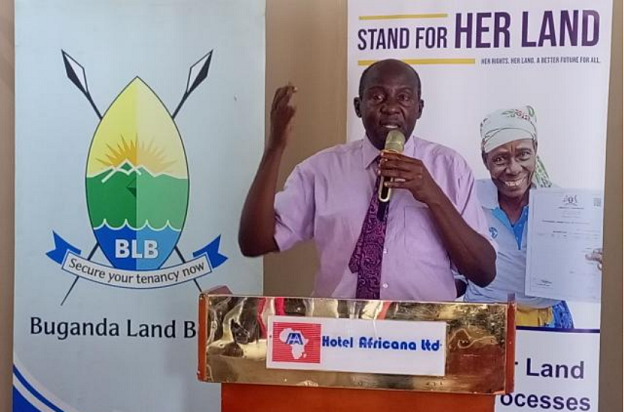Dennis Obbo, the Lands Ministry Principal Communications Officer
The Ministry of Land has issued a warning to women to stop signing family land purchase agreements as witnesses instead of being co-buyers. Abdul-Nasser Olekwa, the Principal Land Officer, and Dennis Obbo, the Principal Communications Officer, highlighted that many women have been evicted from the land because they signed as witnesses rather than as co-owners.
Obbo emphasized that women often contribute significantly to the purchase of land, yet they sign agreements as mere witnesses. This practice allows their spouses to sell the land without their consent in case of a disagreement.
“Why do you allow to sign as a mere witness when it is you who has worked hard to raise the money? Why should you allow your husband to invite you to sign as a mere witness when you have been married to him? Stop these statements and believethat a man is the family head. Have powers to question why you are signing as a mere witness,” Obbo said.
Obbo and Olekwa made these remarks during a dialogue organized by the Uganda Community-Based Association for Women and Children Welfare (UCOBAC) under the Stand For Her Land Campaign in Uganda. This campaign aims to secure women’s land rights by bridging the gap between law and practice.
Olekwa pointed out that cultural beliefs have perpetuated the injustices women face regarding land use and ownership. These beliefs often dictate that women should be submissive to men and have no rights to inherit property from their spouses or parents.
Caroline Kayanja, UCOBAC’s Senior Programs Officer, noted that while women are the majority users of land, men are the predominant owners. She stressed that if women are merely land users without ownership rights, their existence and productivity on the land are at risk.
“We know land issues in this country affected man and women but they affect the women more. We have invested a lot in revising land laws but we need practical efforts to ensure they work for women. The women should not be as mere recipients and but as beneficiaries of land laws,” Kayanja said.
Participants at the dialogue also called for land laws to be translated into local languages to ensure they are understood by ordinary people. Kayanja pointed out that women often lack basic knowledge about land ownership laws, making them more vulnerable to exploitation.
-URN





